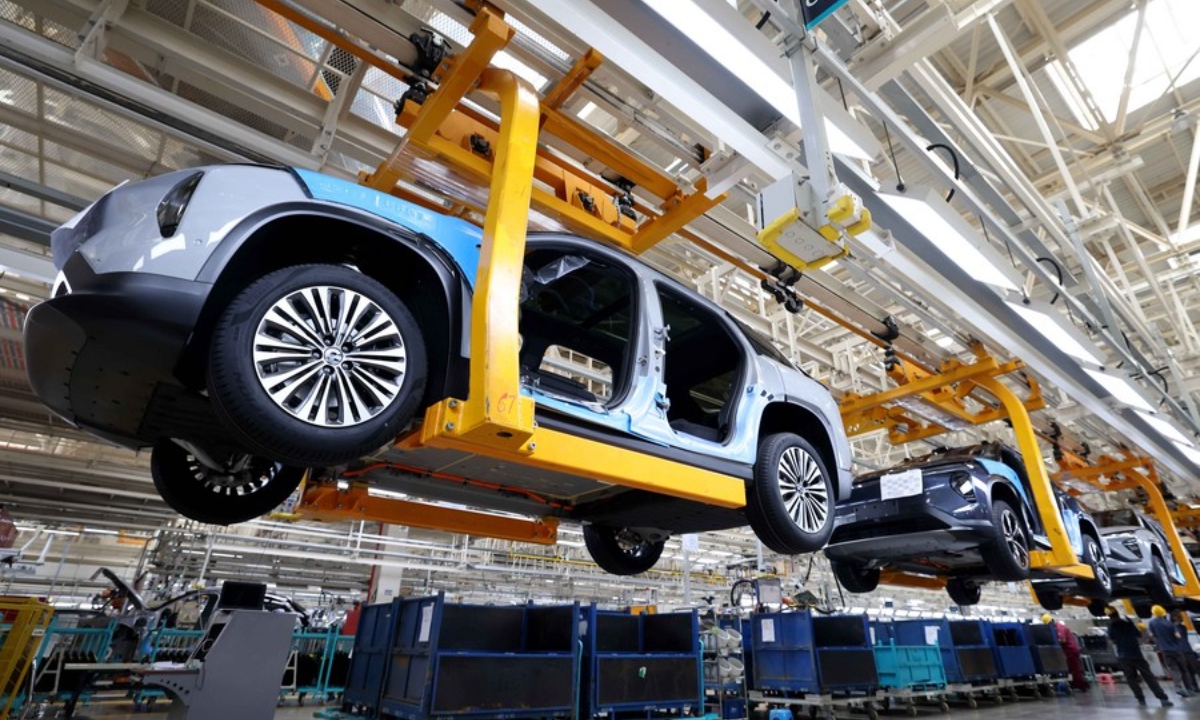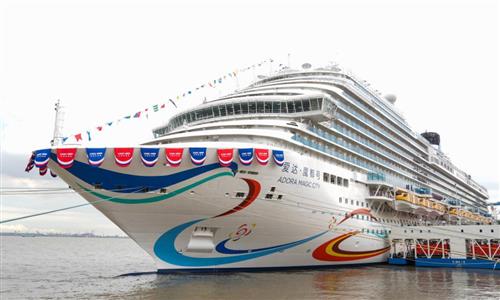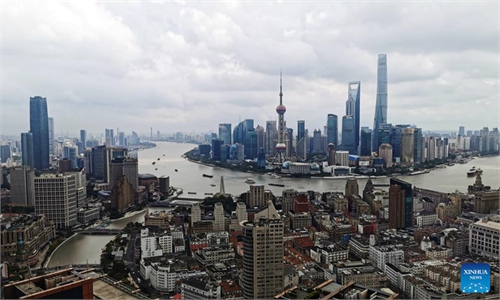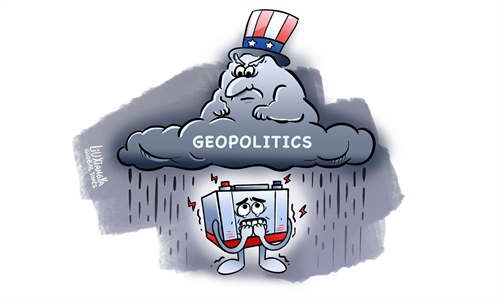
A complete vehicle production line at a new-energy vehicle factory in Hefei, East China's Anhui Province Photo: Xinhua
With the transformation and upgrading of the Chinese manufacturing sector, it seems that China's new energy industry is mired in new trade tensions and challenges, especially in some Western markets, but the West have no power to stop Chinese manufacturing progress unless they use non-market methods that violate basic trade rules.There is a new campaign by Western media outlets to play up overcapacity in China. A Reuters article, entitled "China's high-tech manufacturing loans raise fears of wave of cheap exports," said on Monday that China's investment in makers of high-tech products, from semiconductors to electric vehicles (EV), is raising "fears that overcapacity will fuel a new wave of cheap exports."
"Some Chinese factories, saddled with overcapacity in a struggling economy, are trying to export their way out of trouble and stoking new trade tensions in the process," an article from The Wall Street Journal asserted, with the title "China Is Making Too Much Stuff - and Other Countries Are Worried."
It is nothing new to see Western media outlets accuse China of overcapacity, but the timing of this round of hype about overcapacity of high-tech products, such as EVs, is interesting.
In Europe, EU regulators in October launched an anti-subsidy probe into Chinese EV makers. In the US, media reports said that Chinese automakers are seeing Mexico as a way to enter the American EV market, drawing concerns over local manufacturing.
Against this backdrop, it is now crystal clear as to why there is a sudden wave of reports about China's mass investment in its domestic industries leading to overcapacity and dumping of low-cost products overseas. These reports are nothing but public opinion preparations for Western moves to squeeze the market for Chinese-made goods and adopt trade protectionism measures against Chinese manufacturing, because they are unwilling to share the market pie with Chinese companies.
The so-called subsidies and overcapacity are just labels that the West has put on China in order to attack Chinese companies. What they really care about is whether they can use the labels to keep China's competitive products, like EVs and solar products, out of their markets.
At a time when the US and some European countries have issued their own subsidy policies for emerging industries that help reduce carbon emissions, the West is in no position to point a finger at China's industrial policy. In August 2022, US President Joe Biden signed the Inflation Reduction Act of 2022 into law, which contains $369 billion in clean-energy tax credits and funding subsidies for climate and energy programs.
Also, overcapacity refers to actual production capacity beyond market demand, or beyond the normal level of expectations. But the industries that the West now claims to have overcapacity in China do not fit that definition.
This is because the development of new-energy industries, including EVs, is important for climate change, and China's goals to achieve carbon peak by 2030 and carbon neutrality by 2060 mean that domestic demand for new-energy products will be sustainable and on the rise in the long term. This is the fundamental reason why domestic investment and production capacity in the new-energy sector continues to grow.
The acceptance that Chinese companies have gained in the global markets was achieved by constantly improving themselves through fierce competition, which fully follows the market competition principles advocated by the West. Chinese companies have not expanded their global market shares through any practices that do not conform to international norms. On the contrary, it is the West that has historically preyed on other markets through war and colonization. China always takes the path of peaceful development.
The West has used a heavy hand in taking anti-dumping or countervailing measures against Chinese exports, but these types of unfair treatment of Chinese manufacturing have never really helped Western industries. So if Western politicians still intend to "politicize" the new-energy sector through protectionist measures to acquire unfair competitive positions for their own industries, it would not be conducive to the development of these industries, nor will it be conducive to the basis for global cooperation in combating climate change.
None of the unfair trade measures will stop Chinese manufacturing from making inroads into the global market and taking the shares that are appropriate for China's manufacturing advantages.



